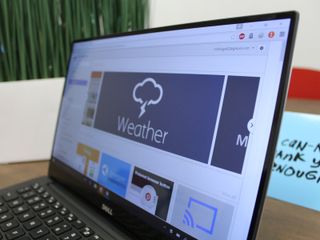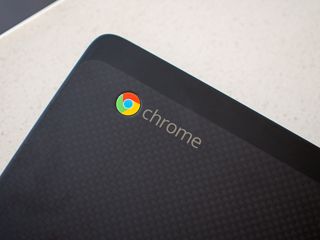3 ways Android apps make Chromebooks more like Windows PCs
Google markets Chromebooks as more secure, simpler to use, and easier to maintain than Windows PCs. But Android apps on Chrome may have changed things.

Unfortunately for Google (and fortunately for Microsoft), Android apps on the Chrome OS chip away at Chromebooks' touted advantages. Windows PCs have been the standard for personal computing for decades. Apple's attempts to subvert Microsoft's PC dominance with Macs have succeeded in only carving out a tiny niche alongside Redmond's market dominance.
Google entered the fray with its browser-focused take on personal computing with Chromebooks in 2011. Despite Microsoft's disparaging ads mocking its "PC" claims, Chromebook's have slowly become a Windows PC alternative in schools, small businesses, and consumers. In fact, Chromebooks overtook Mac shipments in the first quarter of 2016, according to Google.
Though their small global market share leaves much room for growth, Chromebooks gained a foothold due to their appeal as a solution to problems that plague Windows PCs: security issues. Google used these weaknesses as a springboard to promote Chromebooks as "PCs'" with none of the issues of traditional PCs. Ironically, as Google's evolving personal computing strategy brings elements of its successful mobile platform, some Chromebook advantages over Windows PCs are lost.
The more variables, the more complicated

One of the endearing aspects of Chromebooks is their simplicity. Conversely, Windows PCs, with all of their required updates, introduced a level of complexity for average users. Chromebooks aimed to answer this problem with a simple web-based OS that is easily updated by Google.
Additionally, web apps work seamlessly within Chrome, and there is little for users to think about when using Chromebooks. With Android apps now on Chrome, users are presented with a choice that may introduce confusion, or a level of complexity not previously present, as they try to determine if they should use a Chrome app or an Android app. This is similar to the dilemma some Windows PC users face as they try to decide between using a Store or a legacy app.
Android apps on Chrome also introduce weaknesses that are common to Windows PCs.
Viruses and malware
Google likes to talk about all of the viruses and malware Windows PCs are prone. Android apps and the Google Play Store, are notorious, however, for the amount of malware and viruses. Android on Chrome presents Google with the challenge of ensuring that its purported virus-free and secure OS remains that way as it brings virus-prone and insecure elements to the platform.
Get the Windows Central Newsletter
All the latest news, reviews, and guides for Windows and Xbox diehards.
Inconsistent app experience
Microsoft has been criticized for its legacy apps with tiny UI elements that are not optimized for the touch environment pushed in Windows 10. These older apps are not optimized for the experience Microsoft is trying to promote. This is why Microsoft introduced app bridges, like Project Centennial, to begin the process of modernizing these legacy apps by making them Universal Windows Platform (UWP) Store apps.
Android apps on Chrome introduce a similar problem: Many Android apps are not optimized for larger screens. Most Android developers code for smartphones. Whereas web-apps on Chrome are optimized for Chromebooks, Android apps introduce the same dichotomy found on Windows PCs, where a host of apps available to users will not be optimized for a particular scenario.
That's one pricey Chromebook ...

Finally, Chromebooks were initially touted as the inexpensive alternative to Windows PCs. This has one of the big selling points for cash-strapped school districts which have largely embraced Google's solution in the United States. There are still many cheap Chromebooks, but others are now comparable in price to higher-end PCs, eliminating another perceived advantage of Chromebooks over PCs.
Many of the advantages that inspired consumers, schools, and small businesses to embrace Chromebooks rather than PCs have been undone as Android on Chrome makes Chromebooks more like Windows PCs.
Of course, more apps on Chrome is advantageous for Google, but a more complex, virus-prone and inconsistent Chrome experience is beneficial for Windows, and for Microsoft.
Jason L Ward is a columnist at Windows Central. He provides unique big picture analysis of the complex world of Microsoft. Jason takes the small clues and gives you an insightful big picture perspective through storytelling that you won't find *anywhere* else. Seriously, this dude thinks outside the box. Follow him on Twitter at @JLTechWord. He's doing the "write" thing!

